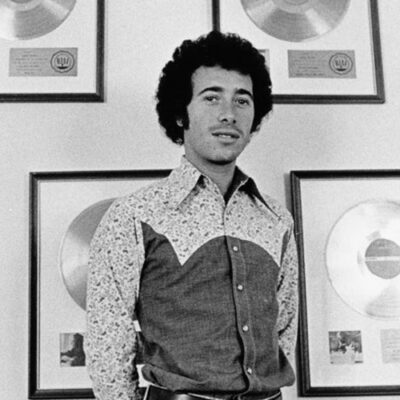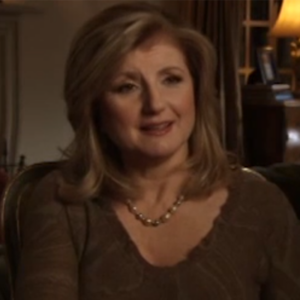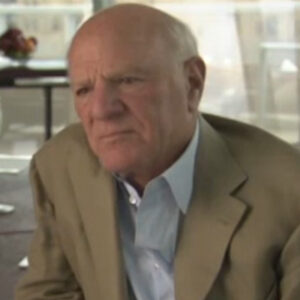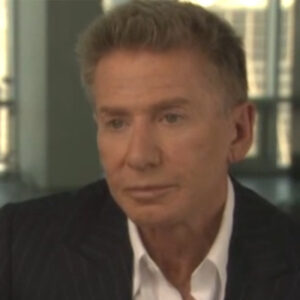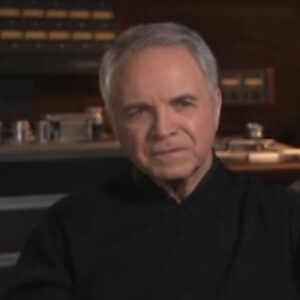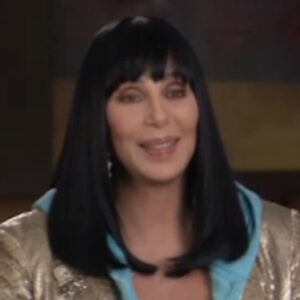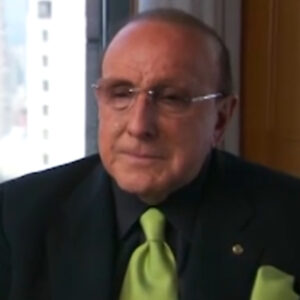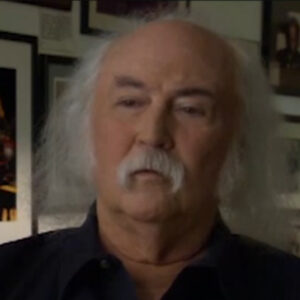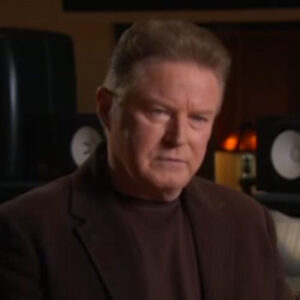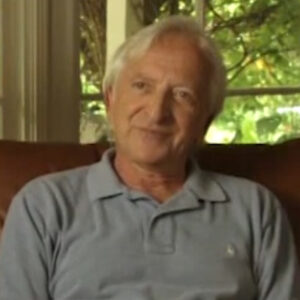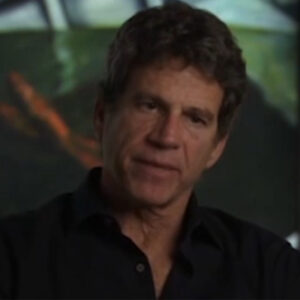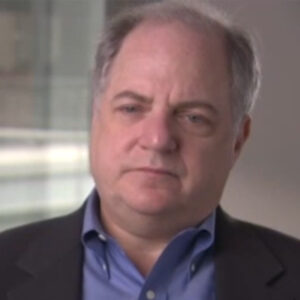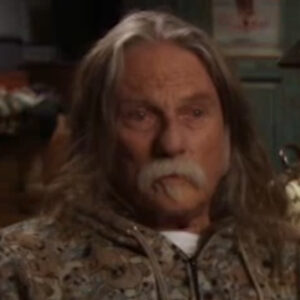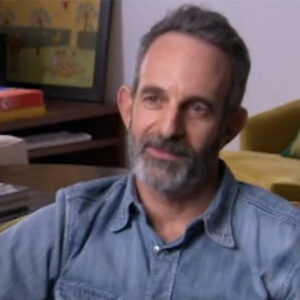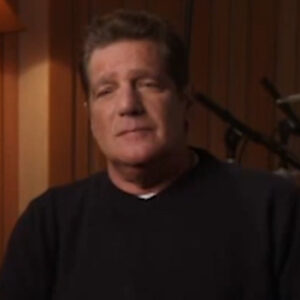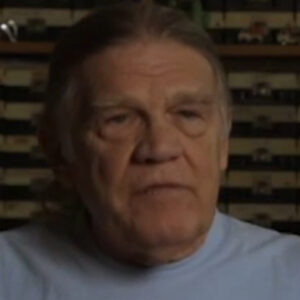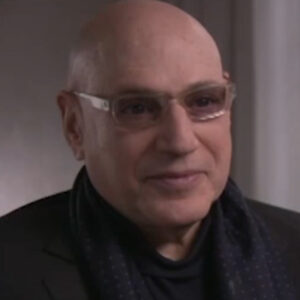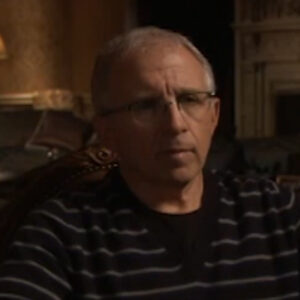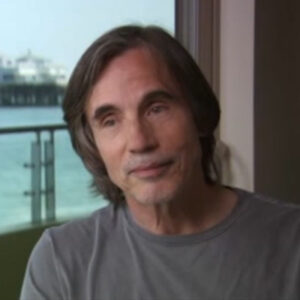Speaker I had a column in 2002 about how NBC specialized.
Speaker This was back when NBC was doing really well. They were specializing in comedies about singles.
Speaker And they had gays on their network, which some of the other networks didn’t. And I interviewed Max Mutchnick, who is the creator of Will and Grace.
Speaker And afterwards, he called and invited me up to have dinner. He said I was being summoned by the gay mafia. And he was kidding around because at the time, Michael Ovitz was very much in the news for complaining that the gay mafia had in Hollywood had ruined his career. So I showed up at his house for dinner and it was just a normal dinner party.
Speaker But Geffen David Geffen was there. And I had heard about him for years, of course, and read about him. But I never actually met him and I really liked him. We had a fun dinner, but we did not become good friends right after that when I was in Hollywood.
Speaker Sometimes he’d have dinner parties and I’d go. But I would say we were friendly, but not close friends. So I went to he was being interviewed at the 90 second Street Y in 2005. And I went to hear it and he said he was asked about Hillary being president. And he said that he did not think she’d make a good president because she was too polarizing and that she all she had to offer was ambition. And I remember looking over and there were some older ladies applauding and there was applause in the audience. And I just was shocked on both fronts that people were applauding, that women, older women, and that Geffen had I had assumed that he was still close to the Clintons and would be supporting Hillary. It just didn’t occur to me because I didn’t know one that well. I didn’t realize that there had been this falling out over Marc Rich and some other issues over the years. And so I called him and said I’d really love to talk about that if you want to. And he said no. And then a long time went by and I saw that he and the DreamWorks guys were going to have a fundraiser for Obama. And I called him and I said, you know, everybody is going to want to know why you all are supporting Obama instead of Hillary, because Hollywood was always Clinton country and Bill used to stay with you when he he’d stay at your house, the Jack Warner House, when he was in town. And people are not going to understand how this switch was made. And you’re gonna have to talk about it sooner or later. And I wish you would talk about it to me. And so he thought about it for a while. And finally he said, okay, come to my house and we’ll talk about it. And I said, you can make up your mind after we talk if you want to be on the record about it. I know you do. You rarely do interviews. But let’s do the interview. And then if you feel comfortable, we’ll do a column. And so we did it the night before his big fundraisers. He had one at the Beverly Hilton, a large one, and then another one at his house. And I thought maybe he would say, I really don’t want to do this or I’m not going to be on the record. But I put the tape recorder down and he just said, you know, how why he thought the Clintons should not be back in the White House and why it would be good to get away from the Bush Clinton dynasties and have a fresh approach on how exciting Obama was. And at the end of it, I said, is that all on the record? And he said, yes.
Speaker So it went in the paper.
Speaker Her line in there. What can you just tell us what that was? That line in line with such ease?
Speaker Yeah, he said that the Clintons lie with such ease that it was troubling.
Speaker That was the line that kind of jumped out at everyone.
Speaker So what was the fallout from that? I ask you questions actually know the answer to. Yeah, yeah. So, I mean, it was like a bomb dropped.
Speaker It was like a bomb dropping. I’ve been involved in, you know, a few of these in my career, but.
Speaker It was as though all well, partly the reason it seemed like all news coverage of anything but this in the campaign stopped and the focus was on this for a week.
Speaker And partly that was because the Clinton campaign made the mistake of thinking they were having trouble trying to figure out how to engage Obama because he was so cool and detached and they had underestimated him and hadn’t realized what a powerful candidate he was going to be. So they figured this was a good time to bring him down or throw some mud at him. And Mark Penn called Howard Wolfson as the book Game Changer reports. And, you know, at one a.m. and said, oh, this is our chance to we’ve got to vilify Geffen. And he wanted to dig up dirt in the sealed records of the Clinton Library and see, you know, Geffen and wanted Leonard Peltier a pardoned instead of Marc Rich, who didn’t understand why this oil, you know, profiteer who had left the country and refused to pay taxes was pardoned by Bill Clinton and instead of Peltier. And so, Mark, Mark Penn wanted to dig up dirt. So any dirt connecting, you know, the Peltier thing or something bad that he could use against Geffen.
Speaker So they began attacking Geffen and attacking Obama through Geffen. And so Geffen just sort of stunned because the whole campaign became about Geffen for a week.
Speaker Why do you think that what David Geffen had to say mattered to anybody? Why do people care and why is it that his opinion matters so much?
Speaker Well, I can tell you from having covered that campaign from the beginning, I think the Hillary Obama contest was, you know, one of the most fascinating things I’ve ever covered. And when Hillary started out, it was almost like, you know, in Republican candidacies, you have the progenitor approach of, you know, it’s very much like a family and the oldest person waiting in that family gets to be president. And usually that’s not the Democratic approach. But in this case, Hillary really didn’t have that much experience to offer. She’d been a senator for, you know, she was going into her in her second term. But most of her experience had to do with things she had done with her husband. So.
Speaker She and Bill were kind of trying to.
Speaker It was like I called to Clinton and they were sort of bullying everyone, any fund raiser that they’d had was expected to raise funds. Any fund raiser that bill had at was expected to raise funds for Hillary. Anyone who had ever worked or gotten a job with Bill was expected to support Hillary. You know, when they went nuts that time about Bill Richardson leaving, then James Carville called him Matute is that was the atmosphere. If you had once supported Bill, you had to support Hillary, which is not really a feminist thing for her. For the first you know, a feminist icon is going to be the first woman president. But that was how the mood was. And so there was a mood where people were afraid to say anything because it was being kind of rammed through that she was going to be the nominee. And I think Geffen kind of burst this dam of people who were thinking, well, I did. If I did support Bill, that doesn’t mean I have to support Hillary.
Speaker And it was he was the first person to kind of break through that, you know, silent kind of bullying approach they were taking.
Speaker It seems that that David’s support of Obama is really many fold. But one, he was disillusioned with the. Ryan, you didn’t think she could win because she was polarizing and because of Bill Clinton’s past.
Speaker Right. Because he still admired her. He told me when Obama appointed her secretary of state that he thought she’d do a great job. He thought she was smart and capable. I think, you know, his feeling was that he also was in a position to know because he was neighbors with Ron Burkle, that Clinton was kind of still having a bit of kind of how would I put it? You know, raffish life hanging out with Steve Bing and Ron Burkle. And I think he thought that something could explode and then they would not be able to change nominees. And and, you know, also, I just think he felt that it was enough with the Clinton Michigan. You know, that that this family had you know, they always said their they their family life was in a private zone. But really, their relationship as husband and wife had so much to do with policy. It had so much to do with the problems that drove health care down. And I think he just thought, okay, enough with that dysfunction. Let’s let’s have a couple that, you know, has a more normal relationship.
Speaker Before we go on to talk more about the column and its impact and all that, can you comment at all on. I know you didn’t know him that well then. You come to know him what his relationship was with the Clintons at its best. I mean, he was very much a go to adviser for that.
Speaker Yeah. Bill called him. Hmm.
Speaker I didn’t know him at the time. He was hanging with the Clintons. I knew that he was someone who Bill called on the time and stayed with and was invited to the White House. But I didn’t really know him. I mean, I just I think he got disillusioned with them on many levels.
Speaker And just thought that they had had their shot. Now it’s time to move on.
Speaker I’m trying to get it, you know, because this is a film about David. Why? He became such an important figure, why why presidents go to him for advice?
Speaker Well, he raised. I forget how much he raised for Bill Clinton. It was a similar amount, if not more. But he raised 18 million for Obama and. You know that that was a big deal for Obama to have, you know, to win over that Hollywood money.
Speaker And in fact, I don’t think Obama has used David enough for advice. If I were Obama, I would have him on a, you know, an outside economic commission. I mean, I just think he he has a very brilliant mind for business and money. And he’s very frank. And he knows, you know. A lot of the way the world and the country works, and I would want more advice from him.
Speaker So with the column you said you had to talk him into it, which I can understand. But I’ve been dealing with I need footage of you. But you both knew I mean, I did read that and you’ve told me that you told him this is going to be pretty explosive, right? So he certainly knew what he was doing. I mean, he would he knew that I mean, he may be surprised at the credible reaction that he got, but he knew what he was doing was strategic.
Speaker I would imagine that was a strategic decision because him and that’s what I’m trying to get at. Did he know that this was going to turn the tide?
Speaker I don’t think he knew how big it would be. No, I don’t think either of us know. And in a way, it had to play out. You had to see how viciously and stupidly and ineptly the Clinton campaign reacted. And that was a very badly managed campaign.
Speaker And that told you something about Hillary’s ability as a manager and it squandered, you know, a quarter of a billion dollars. And. And Obama, you had to see how he would react.
Speaker And he reacted in a very cool way above the fray and said, I think this is a private squabble between you and the Clintons. And, you know, you had to see how both sides played. And I mean, that contest between Hillary Clinton and Barack Obama was so intense that everything that happened like this, any time something breaks this huge, then you see how these people would be in action, how they manage the story tells you something about them.
Speaker Go back to Clinton and I’m sort of not even looking at my questions, but I’m remembering things I want to ask you. How much do you think David’s being Clinton? President Clinton, excuse me, wanting to win over the gay community affected his. Relationship.
Speaker You mean Bill Clinton when he was president? I don’t know.
Speaker I mean, David did not talk to me about this, but I think he was disappointed about, as were many gays, about Bill Clinton’s commitment to gays in the end.
Speaker I don’t know. I think honestly, you know, Bill Clinton, I used to column in columns, the first groupie, because he reversed the traditional relationship of presidents and Hollywood. It used to be with Gary Hart more and Bayti that Warren Beatty just was fascinated with politicians power and politicians were fascinated with Hollywood’s glitter and sexiness. But Bill Clinton became too much of the first groupie, you know, have been Barbra Streisand, sit in on health care meetings and spend the night in the White House. And, you know, he was constantly hanging out at David Geffen’s house. And it was a little bit too reversed. Obama has brought it back to the normal thing, where Hollywood, you know, is dying to come here. And Kal Penn, the actor, gave up his job on House and in the movies to come work for Obama in the White House. Then, you know, the president should be the big star. He shouldn’t be, you know, trying to apple Polish with Hollywood. That just never made sense. But Bill Clinton just was fascinated with that world. I think I think in his secret dreams, he sort of was a rockabilly star rather than a politician.
Speaker That’s very good. Do you know whether he ever asked David advice about Monica Lewinsky and how to handle it?
Speaker I don’t really know. I just didn’t know David then.
Speaker So he has a talk with you that much about his years with the Clintons. And I mean, I think, you know, we all know why he fell out with them. But I’m sure the things we none of us do know. I don’t what he just said to me, Susan, I just got another know.
Speaker Well, and that was just. Death for them. But. There was a time when they were all quite, quite close, you know.
Speaker But that’s why I was so shocked at the 90 second street, why I didn’t know David Geffen well enough to know that they had fallen out. And I was shocked because they had been so close. And I just didn’t see.
Speaker The turn that happened and I had never read about it, so it came as a shock to me.
Speaker So I’m likely to think that Hillary will talk to us right now.
Speaker I don’t know. She’s some.
Speaker She can be quite fearless, I think, in talking to the press.
Speaker She sometimes she lets go of things and starts fresh.
Speaker So.
Speaker I want to read something to you because I’d like to get your take on it. When I interviewed students Gilberg, I asked him what he thought, what he thought David would think was his proudest achievement. And he said. I think he’d be proudest of being the first person to bring to our attention. Barack Obama when he gave a speech at the Democratic National Convention. And David immediately called him on the phone and said, you’re going to be the president. And I’m going to do everything I can to get you there. And he said, I think he’d be proud of being the first person to ever mention Barack Obama’s name anywhere in Los Angeles and New York City and really getting people to pay attention to this junior senator from Illinois. That’s a big statement, do you think?
Speaker Well, I think that’s why also it became such a huge story because that fundraiser and David’s interview were very symbolic for the Clintons because they had basically used Hollywood as an a.T.M. In fact, I remember there was one women’s group that just kind of went out of business. It was exhausted, depleted.
Speaker People in Hollywood were depleted by them coming back again and again for money. And I think also Hollywood was fascinated with Barack Obama’s leading man, you know, kind of star charisma.
Speaker But in general, I think, you know, Bill Clinton, again, he just made him seem once he became the first groupie, Hollywood wasn’t interested because they want to kind of look up to the president and treat him as the big star, not have him kind of, you know, following them around.
Speaker Do you think that it would be fair to say? I mean, we all watch that speech, too.
Speaker I remember thinking this kind of cover, but is it true that David is the first influential person to kind of turn that tide? Is it? I don’t know that. So I’m really asking that because I don’t know.
Speaker Well.
Speaker I’m surprised that Bill Clinton, of all people, underestimated Obama. I mean, when when they found out he had won in Iowa, they were stunned. You know, Terry McAuliffe told me he had to break the news to them. And it just seems funny to me. I don’t know whether Clinton was in denial that Barack Obama was sort of a natural successor to him and had many of his gifts or whether they just thought he was too experienced. But I think it was apparent from the minute Barack Obama came to Washington that this was going to be a huge star. And David actually was the guest of honor at this journalism group and part of the Atlantic Media Group run by David Bradley.
Speaker And there are a lot of columnists and journalists who are prominent in town who come. And he was there about a month ago and he was asked how he thought Obama was doing. And he said, you know, he thought he was doing really well, that he’d just been handed this hideous set of problems and then he was doing the best he could. So he’s not disappointed in him.
Speaker And I think he thinks his a team was well spent so far.
Speaker I know I hate David, set me guess up to ever put that together, sent him an e-mail, you know, which I think he sent around.
Speaker He said he didn’t send it to me. No. Yeah. He sent it to area and I haven’t seen it yet.
Speaker You know, it’s like compared it to, you know, MacArthur’s speech.
Speaker You know, they say you’ve addressed Congress. We’ve had some impressive guests.
Speaker We’ve had Petraeus and Bernanke. But David told Kevin that he was the best guest, so.
Speaker Well, I was just heartsick that I didn’t know about it because I would have been there to film it.
Speaker Oh, well, it’s off the record anyway. Yes.
Speaker And nobody would have talked it that free about it.
Speaker I don’t know why, but David Bradley has it off the record usually.
Speaker Well, in a way, I understand. I’m just desperate for footage, you know.
Speaker You should talk to David Bradley. He’d be good. Yeah.
Speaker I’m desperate for footage of my David Geffen. Are David Geffen because, you know, he’s.
Speaker Now I know now I know that was what was so funny about being summoned up to the meeting with him.
Speaker I think, you know, I think when he first when he didn’t know what to expect and he was a little upset with me because I hadn’t told him to wear a suit and everyone else was in a suit and tie. And I said, you don’t have to dress like Washington people.
Speaker And then Andrew Sullivan showed up in a flannel shirt.
Speaker But I think, you know, David is not quite sure why, you know, he’s a figure you’re in Washington, why they want to hear what he has to say about politics and the economy.
Speaker And in a way, the column transformed him into that. And so I think he was approached it a little carefully. But then after a couple of questions, he just knocked it out of the park because he as you know, he’s very candid and he knows a lot and he has great stories. And he once he got going, he was amazing.
Speaker And the journalists naturally kind of devolved into all these questions, like, what’s it like to be here for Chad?
Speaker What’s it like to have a really, really rich friends? And what’s it like to have a really, really big.
Speaker And then, David, you know about confidence that he could answer those questions and then he was great on politics and business, too, and the economy.
Speaker It’s actually funny. I have purposely that’s that three, four days now interviewing him, not ask him any of those questions yet, because I would think you would think that they were quite beneath him.
Speaker Well, no.
Speaker You know, interestingly, David Brooks, who who is fascinated with music and has done columns on Springsteen and went to the U2 concert, wanted to know how David recognized talent and genius in the music industry.
Speaker I mean. Yeah. It was a great question. He had a great answer.
Speaker And, you know, he’s been in so many worlds that people are fascinated with and they wanted to know about more than politics, but they were also interested in his analysis of how Obama’s doing as well.
Speaker Well, to me, that’s completely fascinating. I mean, I really see this as an interesting chapter in this film is, you know, starting with this with Stephen statement. Right. And telling that story and how, you know, a first generation kid from, as Rob says, the project projects.
Speaker Right. Right.
Speaker Is basically in the entertainment field, becomes this guru in Washington where what he says can influence presidential elections. That’s an amazing story.
Speaker Well, he has you know, I interviewed Arnold Schwarzenegger the other day in California and he has the same thing.
Speaker But they have a certain theory, fierce strive, obviously, where they just get a goal in their head and they are going to get there. I mean, you can feel it now, even though he’s, you know, doesn’t seem to have a particular goal in mind at the moment. He just has a fierce drive and intelligence. And you feel it.
Speaker And do you think I mean, I read him. I mean, he obviously gives away a lot of money and feels some responsibility to give back. There’s something about what he’s doing in politics that goes beyond money. It’s it’s it’s coming out of, I think, a very good place of saying, OK, if what I’ve got to say matters to someone, I’m speculating here to anyone. And I could do good with that. Others speak up.
Speaker Well, he did. And I don’t think he I was the one who suggested he come to the Bradley Atlantic dinner because I don’t think David fancies himself, you know, a great pronouncer on politics. But he was willing to try. And then when they were more and more interested, he responded, you know, with greater and greater anecdotes. But I don’t think he’s presenting himself in any way. He just if it in a way, it all miss remind, it’s analogous to how he is about newspapers. I think he loves newspapers. And he really wanted to get involved to help newspapers.
Speaker And if he could have, he would have. I don’t think that was about making money. You know, I think that was about trying to save an industry that was in distress.
Speaker I think it came as some genuine concern for the future of journalism in America. Right. If he could help you want to do that. What about that whole thing you talk about? I suppose you can’t really, because you worked for The New York Times. Oh, so.
Speaker Well, I can say I you know, I was really disappointed that day David was not able to get involved in a newspaper, either The L.A. Times or The New York Times, because I think he’s really smart.
Speaker I’ve talked to him about it. He has a lot of great ideas for how newspapers make that transition into this new world were going in to with trepidation. And I just think anybody would be lucky to have him as an adviser investor because his motive seemed to be, you know, very much a fondness for journalism. And he’s you know, he’s made his money. He’s he’s not a Sam Zell. You know, he’s he really seems to have the right motives. And I think he’s smart about it. And I wish you know, I wish he were a part of the times or I wish he had been able to help save. You know, another newspaper. Maybe it will come up again. Yes, it might.
Speaker What are some things that you would like to say that, David, that I haven’t asked you? I mean I mean, you’ve now become friends. Do you have any theories on besides that? He’s a hard working, smart guy. What makes David Geffen. David Geffen.
Speaker I don’t know. I just find him. He’s very. I find him very blunt and very loyal. I mean, I know we talked about this before, but when we went through that week of of intensity, nuclear intensity about the column on the other occasions, that’s happened to me, you know, often in journalism, people that you’ve written about. If it blows up into something, we’ll either try and destroy you or say you misconstrued them or they weren’t quoted or it wasn’t in context. And David, you know, is a person you want to be in the foxhole with. Once he decided he wanted to say that there was no way he was going to back off, no matter how hard it got. I kept being nervous that, you know, I would see him that week or call him and just say, you know, are you OK? And he and he never you know, he obviously enjoys and relishes a fight and he’s known for that. But beyond that, you know, you have to be very tough to get through a week like that. And he never he always back me up 100 percent.
Speaker And he was like, that’s exactly what I said. It was set in the right context and that’s what I meant. And I stand by it. And I know that seems like an easy thing to do, but in my experience, that isn’t always what you get from people you write about or sources. You know, they just the minute it hits the fan, they kind of skitter away or try and recast it or something. And so I really admire that about him. I mean, he is very direct. And once he said he was going to do it, he did it. And I, I just I like that.
Speaker And I think he’s you know, in my experience, of course, he has the big boat and the big Jack Warner house, which they called the house that God would have built if he built a house and the beach house in Malibu. He has all the trappings of wealth.
Speaker But what he really seems to like and enjoy the most is just getting a bunch of interesting people together and talking at dinner. And his desires that way are very simple. If he can get his friends and get interesting, talented people together and have a great dinner conversation, that is really what makes him happy.
Speaker I didn’t. I don’t think I told him it was going to be as explosive as it became because I didn’t know that.
Speaker I told him because, as I said, you know, oftentimes people will skitter away from you and say they were misconstrued and stuff.
Speaker If things get explosive, I did tell him that I thought it would be a big column, mainly because Obama. Still at that point was was such an insurgent. And Hillary was such a, you know, front runner, a solid front runner, that I thought it could change the dynamic. I just didn’t realize how much.
Speaker But, you know, when things blew up, I felt and he was very loyal to me and and was great in the foxhole. I felt, even though I I hate TV. Tim Russert asked me to be on two. You think I had to actually fly to Tampa that weekend to be on Meet the Press? And I hate, you know, being on Meet the Press is so scary for me. And when I hear the Meet the Press music, one of faint, but I felt that David had been so great with me that I needed to go on Meet the Press. And, you know, there were all these mud being thrown at him and people saying things that weren’t true, about how the whole thing had come about and that he was trying to bring Hillary down and had conspired when it was really just something he’d said at the Y, and I had to talk him into saying it again. So I figured I should go on Meet the Press then.
Speaker And I saw him that night at the Vanity Fair Oscar party. I just saw him. He was at a different table. And I went up and I said, David, did you see? I went on Meet the Press and he goes, Oh, no.
Speaker I was out at my weekly lunch with the guy. I said, I don’t know, Nina. Nahles or somewhere I was like, wow, he is really, you know, at ease with this. Like, I felt the need to kind of keep putting the column in the proper context.
Speaker And he he was fine. I mean, you know, he is known for that. He’s had a lot of big fights and he never backs down. But, you know, that was just rare in my experience, to have somebody that solid on a huge explosive story like that, where they where the Clinton campaign began trying to villainize him.
Speaker And so it was it was a scary thing.
Speaker I don’t know if you’re aware of this. You no reason for you to unless you were writing a book on David Geffen, but you always had such a great relationship with the press. I mean, when he was young and up and coming and, you know, living with Cher and, you know, I mean, the press was horrible, too. Yeah.
Speaker I don’t know if he has a great relationship with all of the press.
Speaker But it was funny because I had this party at the inauguration, at Obama’s inauguration. And again, we were talking before how he’s a little surprised to find himself. Now, you know, E.F. Hutton on politics or something where people really want to hear anything he has to say. And, you know, Bob Woodward and Walter Isaacson and a lot of the prominent Washington people were kind of gathering around and wanting to talk to him. And I you know, I just think he it took him a while to adjust to that. And it was, you know, in my mind, it was well deserved because he had come out and said something really brave. And that needed to be said because the Clinton thing was being very bullying at that point. And, you know, they needed to address the issue of whether Bill’s life would blow up on Hillary. I just think it in the Democratic Party was ignoring that that needed to be addressed. And he said it. And so I think his, you know, prominence now is someone that people in Washington want to listen to as well deserved because about, well, you’re inaugural party was the place to be.
Speaker I know it was so funny because I don’t I never give parties and I don’t know how to give parties.
Speaker So I didn’t have anything like a VIP line. And so all of David’s friends came later than all of the party crashers.
Speaker So it’s a matter of fact, maybe the Salahi’s were there.
Speaker I don’t know. I mean, you know, that the house was, like, so packed. I think there were actually. I actually have some friends who I think conceived a child that night. People were sardines up against each other. But anyway, David’s friends arrive fashionably late expecting to Walson. And the next day he sends me an e-mail and he’s like, Did you know that Bruce Springsteen tried to you couldn’t get in?
Speaker But he wasn’t chastising me.
Speaker He was just amazed that there were all these people or people here wanting to meet him while Bruce Springsteen and Tom Hanks and Tom Brokaw and sadly, the executive editor in The New York Times and the publisher of The Washington Post were outside not being able to get out.
Speaker Tom Hanks was saying, am I going to have to go to somebody?
Speaker So I didn’t do well by David’s friends. But.
Speaker Will this change the way your party is the next time?
Speaker Oh, no more parties say I now have to admit I’m a terrible party giver.
Speaker Well, you know, everybody in the whole world, next time you have a party, probably should do it in a different place.
Speaker It’s true. I still hope the party doesn’t have to be your house.
Speaker What? What do you mean?
Speaker Silly question what you friendship about. But what kind of friend is David? Well.
Speaker You know, we it’s one of those things where as you get older in life, you very rarely make this sort of friends you make when you’re in high school or when you’re an early on. You might cover campaigns together and you get thrown in with people and have a very intense bonding experience and then you get to be friends. So for me, that was you know, in fact, Tom Friedman had joked with me when I got a column that I better like the friends I had because I certainly wasn’t going to make any more.
Speaker I would be losing some.
Speaker And so it was interesting because it’s rare to have that kind of intense bonding experience with someone and then to come out on the other side, friends and.
Speaker You know, but again, our friendship basically is if I’m in L.A., I call him and we have dinner and he just likes to have good conversation about culture and politics. And it’s very simple.
Speaker I often emails me and says, how did you read Maureen Dowd yet?
Speaker Well, he’s my new best friend. And you before. I know. Yes. He’s very. Yes.
Speaker He’s very on top of everything, even though he’s usually on that boat. But he must have good communications because he always knows everything first. And, you know, seems to be very aware of what the markets are doing and what’s going on in the Obama White House. And, of course, he’s friendly with Romney. He’s godfather to one of his kids. So he he has great connections, tentacles out everywhere.
Speaker We have. I said I had a very nice interview with Rob yesterday. No. Who would not talk about the Clintons? Surprise me. No. To talk about. Well, I’m sure that was a weird week for Robert. I believe he did. We kept waiting for him to cancel. But.
Speaker No, I mean, the week when David was like, I’m sure that week was a weird week for Rahm, too, because, you know, when the week of the column, because at that point, Rahm was kind of stuck between the Illinois senators and start over because I stepped on that.
Speaker Oh, really interesting.
Speaker You know, I was just saying I think that must have been a really weird week for Rahm, too, because he was in this awkward position where he, you know, knew Obama from Chicago and he’s the Illinois senator. And yet, you know, again, the Clintons demanded that anyone who had had a job with Bill or ever even supported him in any way was supposed to switch over to Hillary and then Rahm’s kiss. That was funny because Hillary fired him once and he just you told me that he just kept coming to work until he he said, I’m not going anywhere until Bill comes in and fires me. And then Bill the nerve to do that. So he just kept coming to work. But even so, I think he also helped broker Hillary as secretary of state. He likes Hillary, too. But I’m sure that we must have been very intense for Rahm, too, because he was just caught in the middle of these two loyalties.
Speaker Absolutely, well, he’s also was the person responsible for introducing David to Clinton, to President Clinton.
Speaker Oh, that makes sense now. Makes sense.
Speaker He brought them together. Those steakhouse. Little Rock? No.
Speaker I wonder if David was able to find his, you know, proper.
Speaker Healthy food it is. I’m not sure.
Speaker Of.
Speaker I’m sure that you spend most of the time when you’re with David talking about what’s going on in the world and then culture and all that stuff.
Speaker But does he ever talk to you about his growing up years or. Does he reveal himself to you? Yeah, we have talked about that stuff.
Speaker Not lately, I’ve asked him about his mother. I mean, I think she must have been an amazing force in his life. And he told me the story of, you know, when he opened the door, when he opened the letter.
Speaker When you, Morris, took it out. What did he do? Hide it or something? How his whole career started on a deception, which I love.
Speaker He basically went in every morning when he found out that the check reference my right. He indicated he was a graduate of UCLA, which was right with it at 6:00 every morning with all the veil up till the letter came from UCLA.
Speaker Well, I either need to get he got the he got the stationery reproduced on the exact same page, you know, and he just wrote me wrote it.
Speaker Well, I love that story because it’s like a J. Pierpont Finch and how to succeed in business without really trying. Who starts in the mailroom and then tricks and claws its way up to the upper echelon.
Speaker So far. Well. And, you know, David is funny.
Speaker He just always tells that story with great humor.
Speaker Well, it is. He is in many ways the classic rags to riches story.
Speaker Ryan, is the American story, right?
Speaker Do you see a.
Speaker And I think when he went to the Obama state dinner, in a way that was the capping moment that started with the column and ended with he and Jeremy going to the Obama state dinner.
Speaker And he was at Michelle’s table and he told me that Michelle came up to him and said, I wanted to thank you for for, you know, what you said and Maureen’s column. So it was like a full circle thing.
Speaker He was at Michelle’s table, not Obama’s.
Speaker He was at Michelle’s. No, he he’s at Michelle’s table. And he said she was incredibly gracious and that they had a great time. And, you know, it just to me, it felt like it had started. And that other bold move of his than the maelstrom. And then the final result of that partly was being at the state dinner and having Michelle mentioned it to him, kind of a full circle, you know, like the Jack Waterhouse I don’t with, you know, where he was a jobs favorite was the biography of Lady.
Speaker Oh, no, I didn’t know that. Yeah. Except he took out all of Mrs. Warner’s weird, you know, kind of she had double glass, some things to protect her from aging. I think he should have left all her weird things intact.
Speaker I think that a lot of this is completely not relevant to this, but a lot of the original scripts and things for the water movies were there.
Speaker He had, you know, his Hollywood friends come over and take their pick. Oh, that’s so funny.
Speaker Well, there’s some pretty valuable scripts that are out here. So, you know, bounce scripts.
Speaker Yeah. When he came in, he was when he was in Washington for that dinner and came in this house and he looked at me and goes, You’re a hoarder, aren’t you?
Speaker Yes. You know, I don’t think he’s a hoarder. I think, again, it’s like give him a good conversation and a nice yard. And he’s perfectly happy. I had to rearrange the furniture. No, no, no.
Speaker But he did love I have a jukebox downstairs with a lot of, you know, old artists on Gnome 45. Sandy loved that. Had a lot of stories about those artists.
Speaker When you think of that, David, I mean somebody you’ve got to know later in your life and you look back, I mean, for what you knew about him. How would you describe his legacy, cultural legacy?
Speaker Well, I’m not I’m not an expert in music, I mean, I think obviously he had a big impact in the music industry. And, you know, he was very much part of an interesting time in the Clinton administration and saw a side of, you know, Bill Clinton that was will fascinate historians for years to come. And I think in the case of Obama, by deciding that this young, you know, insurgent had something to offer in persuading Steven Spielberg and Katzenberg and these guys to support him and by saying why he thought the Clintons might not be the best traits to come back to the White House. I think that he played a pivotal role in that race. So in those areas.
Speaker One last question about the column, and then I’m going to just ask you to. Describe David in three words. But I don’t think this was said. He said that the Clintons were surprised about it. They were surprised that Obama was a viable candidate. But can you talk about Hillary’s reaction to David’s defection?
Speaker I know that Bill Clinton was furious and in the book, Game Change is a game changer, game changer. OK, in the book Game Change. When Mark Penn calls Hillary in the middle of the night and says we’re going to attack Geffen and attack Obama through Geffen, she says, okay, go for it. So she must’ve been upset.
Speaker But.
Speaker Oh, wait. Sorry. There was something I was going to tell you. But the.
Speaker What are we talking about, the reaction of Hillary? Well, I’m happy already have.
Speaker Oh yeah. Yeah, I know. A fundraising dinner for Obama for. Oh I don’t know. Oh, I don’t know. What I was going to tell you was that another column? Another story that I kind of broke later was that at one point Hillary and Obama met on the tarmac. And Hillary got very angry at Obama. And then he put his hand on her shoulder to calm her down. And then she complained later to raids that she hadn’t like being kind of held in place like that. And so I reported this story out and apparently she was getting upset at Obama and a lot of things that he had said in the campaign. And one of the things she was really upset about was what Geffen had said. And she confronted Obama on the tarmac about that. So and that was a while later. So obviously, she and Bill were obsessing on it and angry about it. But I think that their strategy for winning was that, you know, they had to keep everybody who had ever supported him supporting her, even though, as I said, that doesn’t seem very feminist.
Speaker But so once David exploded, I think it stayed exploded.
Speaker I think I don’t know. You might know this is the first fundraising dinner happened maybe two days before. OK, so it was very tough.
Speaker Are you sure? Because I was at the dinner.
Speaker There was a big Beverly Hills, Beverly Hilton Sorry, Beverly Hilton fundraising dinner, and afterwards there was a dinner at his house for 35 people and I was at that dinner, but it was the same night and the night before. Is when I interviewed him and I was there that week for that, so I’m not sure there was another one before that.
Speaker But was this right before the 90 second street? Why?
Speaker No, no. The 90 second Street Y was in 2005. And then this was 2010.
Speaker Someone I guess you know.
Speaker Well, I do know that when he threw his first fundraiser for Obama, Hillary went nuts.
Speaker I think that’s this night. That is this night. There was a big one at the Beverly Hilton with a cast of thousands that drew a lot of stars. And then after words the same night, he had a dinner at his house and I was there. Oh. And this is interesting because I think that Obama did not want me to come. And I don’t know if he or one of his aides told David that I could not be invited. And David said, well, Maureen’s coming.
Speaker And if Obama wants to come and get his check, that’s fine or not. But Maureen is coming. And that’s David, you know, and there had been another fundraiser with a supporter of Obama’s where he did who I knew when like me. And he wanted me to come just as his guest. An Obama or someone connected with him called and said, I couldn’t come. And the guy called and said, Oh, I’m so sorry, Obama doesn’t want you here. So when Obama didn’t want me to come today, that’s like just assume that David would say, OK, and call me and say, Maureen, you can’t come.
Speaker He told the woman that he was the one who didn’t have to come, which is David. You know, he’s just if he’s loyal to you, he’s loyal to you.
Speaker Do you have any other stories like that that you can share with us revealing things about.
Speaker No, that’s no to ask. Yeah. No, that’s my best one, because it’s you know, journalists are often, you know, it’s easy to push them out beyond the rope line.
Speaker I wasn’t I wasn’t gonna write about it or I knew it was off the record or whatever. But David had invited me and he certainly wasn’t going to uninvite me. I mean, that just wouldn’t be his style.
Speaker That is one of the best examples I’ve heard of his loyalty to people every day. Just this. Loyalty just that.
Speaker Yeah.
Speaker Because I already I’ve been in the same situation with another top down or had a party here for Obama. And I don’t know if the word came down from Obama or his people. And the guy called me and said, I feel really embarrassed about this, but, you know, they don’t want you there.
Speaker And it was funny because Obama got if a little bit Bidya, you know, after these situations, Obama got in trouble for saying the thing at the fundraiser in San Francisco for talking too bluntly at the fundraiser in San Francisco. And then there was a Huffington Post citizen reporter who recorded it. And that was when he said people were bitter.
Speaker And, you know, it was funny to me that Obama actually thought you could close fundraisers and that nothing from fundraisers would get out to the press. I mean, I wasn’t going to write about him, but that was a naive thing that came back to bite him.
Speaker Yeah. But I just I would love to hear whoever was on the other end of the phone call, I don’t know if it was Obama himself or someone else who just thought I shouldn’t come.
Speaker But David was like, OK, fine, too. Don’t come get your check for one point three million or whatever. I’ll just keep it here.
Speaker That’s amazing. I have this image. You can’t get this image out of my head of what you just described, of Hillary attacking Obama, of what David said on the tarmac.
Speaker Yeah, I did a column about it. And, you know, there were several things that she was angry at Obama about.
Speaker And, you know, it just all came pouring out and she was, you know, yelling at him. And all the people were, you know, watching were very startled because it was a very intense confrontation. And he just put his, as he does all the time or did in the Senate, he just put his hand lightly on her shoulder to try and calm her down. And that made her furious. But one of the things was the Gaffin column, which had stayed with the Clintons. And, you know, they just viewed it as such a you know, they were so angry at it, even though they must have known that the relationship was ruptured. But they just expected, you know, Hollywood was theirs. That was their territory.
Speaker Really interesting. Three words, David, and three words.
Speaker I can’t believe. OK.
Speaker Let’s see David in three words. Well, I would say blunt.
Speaker I would say creative.
Speaker And.
Speaker I would say. To me, anyway. Very loyal.
Speaker Ever anything that’s really good interview.
Speaker Okay. Thank you. Thank you. You’re so lovely. Kyle.

